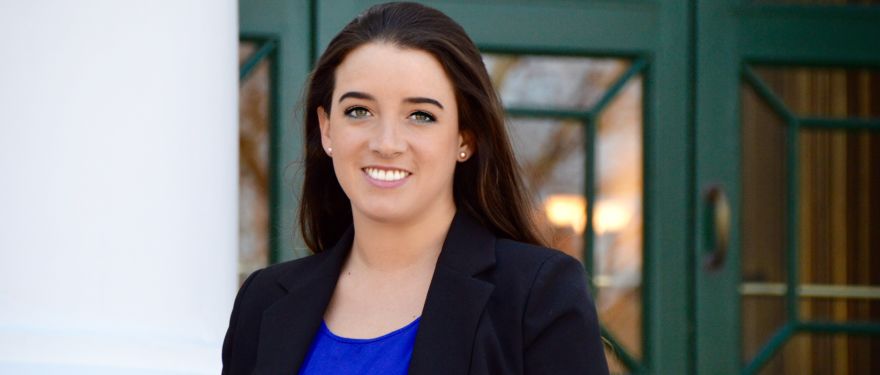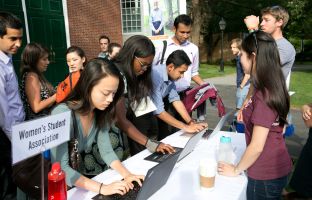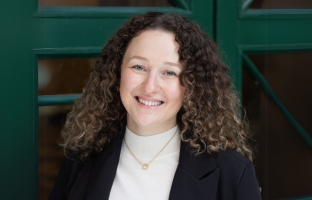Starting business school meant a lot of “first time” experiences to me: First time living abroad (not to mention moving out of my parents’ house), first time going to school in English, and, of course, first time trying to navigate the U.S. job market. I have to be honest; having to be actively looking for a job during eight out of the nine months of the first academic year was not particularly pleasant or stress-free. Nevertheless, my recruiting process was exactly what I needed (pain and all) to discover myself and land the perfect internship.
What’s remarkable about my story is certainly not the fact that I invested 40 hours in information sessions, 60 hours in interviews, 40 hours of preparation for those interviews as part of 20 job applications and approximately 200 handshakes and 50 glasses of wine in networking events (or that I actually ran the numbers). Seriously, the last weeks before I got my offer I was spending as much time in recruiting activities as in class. What’s interesting, now that I know the ending, is how much I resisted actually pursuing the career that I wanted and how, regardless of my efforts in the opposite direction, the market (thanks to the amazingly powerful forces of supply and demand) ended up placing me in the right job.
When I applied to HBS, I had to figure out my career plans after graduation, as part of the application process. I thought I was sure of what I wanted. I had the company’s names and positions I wanted, locations, and clear deadlines. I even remember thinking: “I’ll do my summer internship in this company, get a full time offer and then stay for a couple years, go back home, start working for this other company and someday I’ll be CEO”. It didn’t take me long to realize that my plan was nonsense. Starting HBS opened my eyes to infinite career possibilities, providing a support system, tons of resources and a vast network to make sure I am well informed and equipped to get the right job. Most importantly, HBS gave me a structure to find my way in a highly competitive and a bit overwhelming job market, even more so for an international student that has never had to go through such a massive job search.
The first big thing that struck me about looking for a job in the U.S., compared to Peru, is the concept of “networking”. It’s not that we don’t do any networking in Peru, but it is a lot less institutionalized and structured. I guess you do need a solid professional network to be able to land that interview in the company you want, but we just have to be creative in finding those networking opportunities: family’s connections, childhood, high school and college friends, really anything. Just to add a little color, I learned about the job opening where I ended up working for four years right before HBS chatting to a friend in a club. Recruiters don’t ever reach out to you the way they do here, and not being an expert in the art of making memorable small talk with strangers that will very likely be evaluating you, I felt completely off my game. I remember my first cocktail, a friend asks me: “So, do you know what you are going to ask? I have my list of questions, they always work. Make sure they remember your name and get their business cards”. I panicked. Of course I did not have a list of questions, it seemed totally unnatural and rehearsed.
I soon learned that not only did it feel unnatural and rehearsed, but it also looked unnatural and rehearsed sometimes. I saw myself going from small group to small group trying to subtly fight for my right to air time with the recruiter, making sure you sound smart and confident but not cocky, listening to the same things over and over again (and I came to realize that my friend was not the only one with a list of FAQ’s to recycle as needed). With time, having one or two of these events per week was the norm and I started to feel a lot more comfortable. I soon realized that the strongest connections I made came from genuinely finding common ground with the person who I was talking to, having honest and meaningful conversations and not being afraid to be myself. Moreover, I understood that this system works very well in enabling outsiders like me to start making their way into the job market. Although challenging in the beginning, I managed to learn all the “tricks” but realized I didn’t really need them if I was able to feel comfortable in my own skin and genuinely enjoying the process of meeting new people. In the end, you can do everything by the book and still spectacularly fail if you hide your true self. I realized that I want to work somewhere where I can be authentic, and in order to find that match you have to be very honest, very early in the process.







